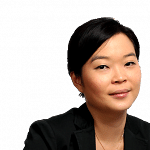SINGAPORE - Overall inflation in Singapore fell further in September to reach a seven-month low of 0.6 per cent, as housing, transport and clothing prices eased.
But food prices rose more quickly, a trend that may continue in the near term due to the higher costs of regional food supplies.
Transport costs dipped 1.8 per cent last month from a year ago, dragged down by a 2.8 per cent fall in private road transport costs, according to data released by the Department of Statistics on Thursday.
The decline reflected cheaper Certificate of Entitlement (COE) premiums from a year ago.
Accommodation expenses slid 0.6 per cent, accelerating from the 0.2 per cent fall in August, "as a result of the soft housing rental market", said the Monetary Authority of Singapore (MAS) and Trade and Industry Ministry (MTI) in an accompanying statement on Thursday.
Overall inflation in August had come in at 0.9 per cent.
Core inflation, a measure of price rises that excludes accommodation and private road transport costs, also rose by a slower 1.9 per cent last month, down from 2.1 per cent in August.
This was mainly because of enhanced medical subsidies, including for the Pioneer Generation Package, which resulted in a "one-off reduction" in the cost of healthcare services, said the MAS and MTI.
The lower healthcare costs also checked the rise in overall services inflation, which came in at 1.7 per cent in September, down from 2.1 per cent in August.
But some services costs - such as telecommunications services, tertiary education and air transport - picked up pace in September from August.
The prices of food also rose faster in September - 3 per cent - compared with August's 2.9 per cent increase. This was "mainly due to a steeper increase in the prices of prepared meals", said the MAS and MTI.
They added that food prices in Singapore may continue to rise in coming months. " Domestic food inflation could be impacted in the near term by higher prices of regional food supplies," the government bodies said.
"At the same time, with the economy at full employment, wage pressures should continue to increase and filter through to prices, in particular, of various services items for which demand remains firm," they added.
The Government expects overall inflation to come in between 1 per cent and 1.5 per cent this year and between 0.5 per cent and 1.5 per cent next year.
Core inflation is projected to average between 2 per cent and 2.5 per cent this year and rise slightly into early next year before easing, averaging between 2 per cent and 3 per cent next year.

